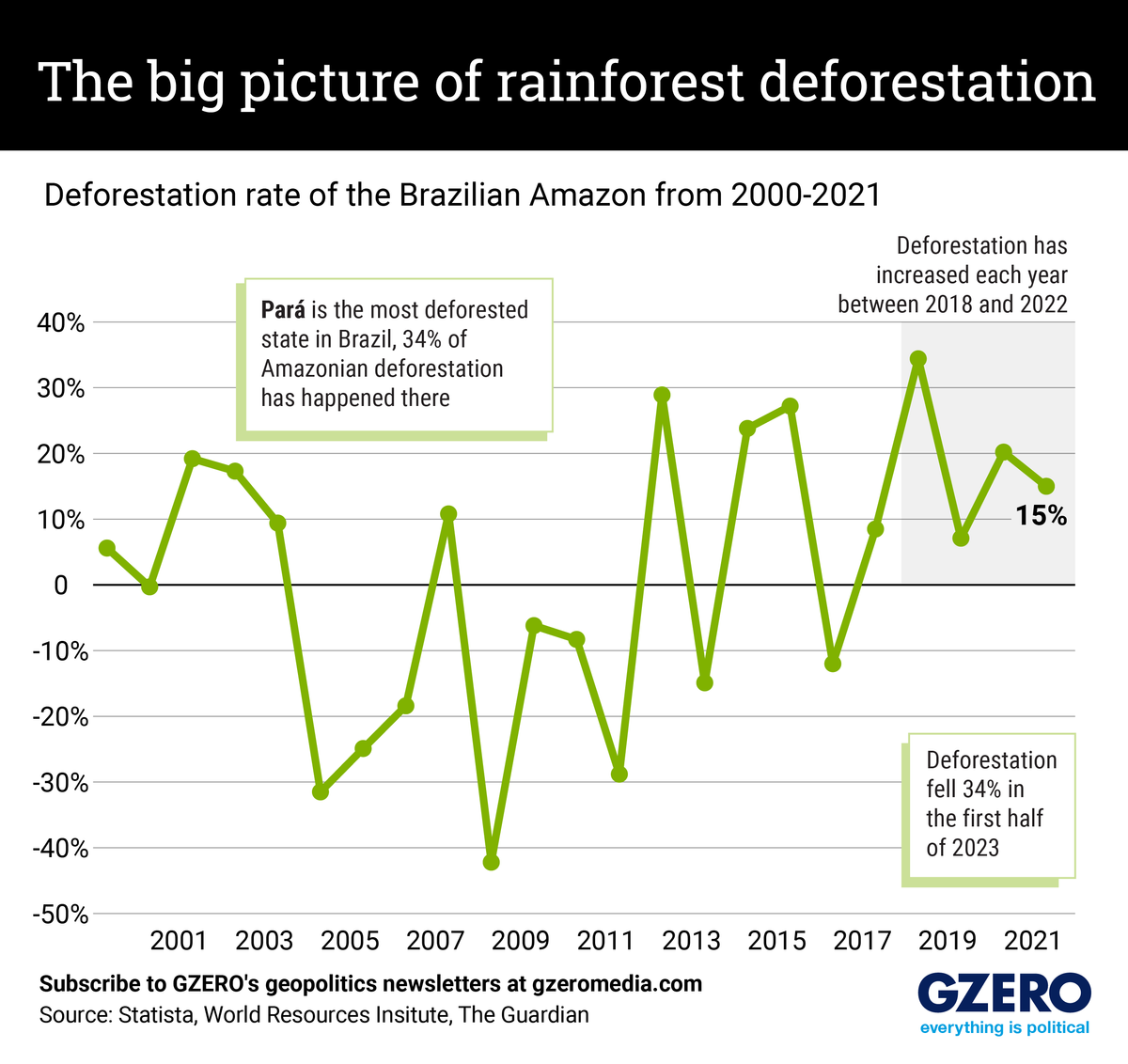Fresh out of Barnard College with a degree in political science, Riley is a writer and reporter for GZERO. When she isn’t writing about global politics, you can find her making GZERO’s crossword puzzles, conducting research on American politics, or persisting in her lifelong quest to learn French. Riley spends her time outside of work grilling, dancing, and wearing many hats (both literally and figuratively).
Eight Amazon rainforest nations are gathering in Brazil this week for a two-day summit of the Amazon Cooperation Treaty Organization. It’s the first time the group has convened in 14 years, and negotiations on more than 130 issues are expected to prove contentious, especially proposals to prohibit new drilling projects and end deforestation.
The heads of state from Bolivia, Brazil, Colombia, Ecuador, Guyana, Peru, Suriname, and Venezuela will be in attendance. Colombian President Gustavo Petro is leading the charge to block all new oil development, and he is pressuring his Brazilian counterpart, Luiz Inácio "Lula" da Silva, to join him. Meanwhile, Brazil is considering a huge offshore oil development near the mouth of the Amazon River.
Lula pushed for a pre-summit pledge to end deforestation by 2030, and six of the eight nations agreed, with only Bolivia – whose forest loss increased by 32% last year – and Venezuela abstaining.
The preservation of the Amazon rainforest is key to humanity’s fight against climate change. Here we look at the levels of deforestation in Brazil’s Amazon rainforest since the beginning of the century.






